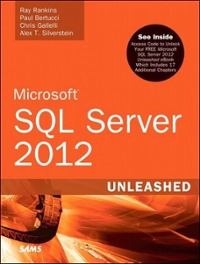Answered step by step
Verified Expert Solution
Question
1 Approved Answer
/*need to follow directions of comments*/ Expected output: Looking for 3 words Result: cat:1 nap:0 dog:0 */ #include #include #include #include smp0_tests.h /* B2 */
| /*need to follow directions of comments*/ Expected output: |
| Looking for 3 words |
| Result: |
| cat:1 |
| nap:0 |
| dog:0 |
| */ |
| #include |
| #include |
| #include |
| #include "smp0_tests.h" |
| /* B2 */ |
| #define LENGTH(s) (sizeof(s) / sizeof(*s)) |
| /* Structures */ |
| /* These are like classes, the name of this structure is WordCountEntry |
| it can be instantiated like this |
| WordCountEntry nameOfStructureInstance; |
| */ |
| typedef struct { |
| char *word; |
| int counter; |
| } WordCountEntry; |
| /* Complete C4 and in this function |
| strtok() can be used to split a line into individual tokens. |
| For the separator characters we use whitespace (space and |
| tab), as well as the newline character ' '. We could also |
| trim the buffer to get rid of the newline, instead. |
| strtok returns NULL when no more tokens are available. |
| Google strtok line to learn more about how to use it */ |
| int process_stream(WordCountEntry entries[], int entry_count) |
| { |
| short line_count = 0; |
| char buffer[30]; |
| while (gets(buffer)) { |
| if (*buffer == '.') |
| break; |
| /* Compare against each entry. */ |
| int i = 0; |
| while (i < entry_count) { |
| /* B1: Google the meaning of the returned values of strcmp */ |
| if (!strcmp(entries[i].word, buffer)) |
| entries[i].counter++; |
| i++; |
| } |
| line_count++; |
| } |
| // Returns the number of lines processed. |
| return line_count; |
| } |
| /* Complete B5: introduce a temporary variable i and use it to access every index in entries */ |
| void print_result(WordCountEntry entries[], int entry_count) |
| { |
| /* C1: send output to the right stream, use fprintf */ |
| printf("Result: "); |
| /* fix this*/ |
| while (entry_count-- > 0) { |
| printf("%s:%d ", entries->word, entries->counter); |
| } |
| } |
| void printHelp(const char *name) |
| { |
| /* C1: send output to the right stream, use fprintf */ |
| /* C2: add instructions for the extra option -f */ |
| printf("usage: %s [-h] |
| } |
| int main(int argc, char **argv) |
| { |
| const char *prog_name = *argv; |
| /* C3: make entries a pointer instead of an array */ |
| WordCountEntry entries[5]; |
| int entryCount = 0; |
| /* C1: create a variable to store the output stream to use, stdout by default |
| Hint: use the FILE data type and understand the stdout and stderr output streams*/ |
| // FILE *output = ?? // Complete this stream variable definition (Note: this will not be a file) |
| /* Entry point for the testrunner program */ |
| if (argc > 1 && !strcmp(argv[1], "-test")) { |
| run_smp0_tests(argc - 1, argv + 1); |
| return EXIT_SUCCESS; |
| } |
| /* C3: allocate (potentially) a little more memory than strictly |
| necessary, thus avoiding extensive modifications to the code below. Hint: use malloc */ |
| /* B4: ignore the program name in argv */ |
| while (*argv != NULL) { |
| if (**argv == '-') { |
| switch ((*argv)[1]) { |
| /* C2: -fFILENAME switch: open FILENAME and set it as the output |
| stream */ |
| /* B3: fix the logical flow error in the switch*/ |
| case 'h': |
| printHelp(prog_name); |
| default: |
| /* C1: send output to the right stream, use fprintf */ |
| printf("%s: Invalid option %s. Use -h for help. ", |
| prog_name, *argv); |
| } |
| } else { |
| /* C3: the LENGTH macro will not work anymore, since entries will be a pointer, not an array */ |
| if (entryCount < LENGTH(entries)) { |
| entries[entryCount].word = *argv; |
| entries[entryCount++].counter = 0; |
| } |
| } |
| argv++; |
| } |
| if (entryCount == 0) { |
| /* C1: send output to the right stream, use fprintf */ |
| printf("%s: Please supply at least one word. Use -h for help. ", |
| prog_name); |
| return EXIT_FAILURE; |
| } |
| /* C1: send output to the right stream */ |
| if (entryCount == 1) { |
| printf("Looking for a single word "); |
| } else { |
| printf("Looking for %d words ", entryCount); |
| } |
| /* You may modify the parameter list of any of these functions */ |
| process_stream(entries, entryCount); |
| print_result(entries, entryCount); |
| // MANDATORY! FREE MEMORY, CLOSE FILES, STREAMS, etc. |
| return EXIT_SUCCESS; |
}
Step by Step Solution
There are 3 Steps involved in it
Step: 1

Get Instant Access to Expert-Tailored Solutions
See step-by-step solutions with expert insights and AI powered tools for academic success
Step: 2

Step: 3

Ace Your Homework with AI
Get the answers you need in no time with our AI-driven, step-by-step assistance
Get Started


